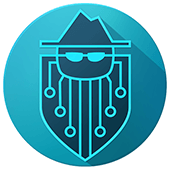5 Tips For Staying Safe Online
On May 3rd, a sophisticated Google phishing scam highlighted just how easy it is for cyber criminals to gain access to personal information. In this attack, an email containing a Google Docs link from what looked like a known contact resulted in the total takeover of a person’s Gmail account. It also made it possible for the attackers to utilize the account to further spread the attack. And because it was sent from a name that people recognized, even the most cyber aware were vulnerable.
Phishing attacks are a popular way for criminals to access personal information — we’ve also seen massive W2 tax form phishing attacks and identical domain phishing attacks in recent months. But phishing attacks are just one way, splashy way that you’re vulnerable online. Concerned about your internet security? Here are five ways that you can be more cyber aware.
1. Use a private search engine
If you’re sick of ads popping up related to things you’ve searched for on one of the main search engines, consider using a private search engine. DuckDuckGo, for example, doesn’t track or store your search history or any personal information. Because of that policy, you won’t see ads on Facebook after you’ve made a random search.
2. Protect yourself with a VPN
Think incognito mode is protecting you from being tracked across the internet? Think again. Incognito or “private” mode is designed to keep your browsing history secret from anyone who’s trying to access your computer from your computer. So it’s great if you don’t want your kids to know what sites your visiting, but not so great if you don’t want Facebook or Google or your boss or the government to know what you’re doing online.
For that, you need a Virtual Private Network (VPN). A VPN creates a secure, encrypted connection so that any information you send or receive over the internet is protected from everyone from hackers to the government.
3. Use a reliable DNS
A domain name system (DNS) is the tool computers use to bring you to the sites you want to visit. So, for example, when you type, “facebook.com” into the bar at the top of your screen, your computer reaches out to the DNS, which comes back with a series of numbers so that your computer can bring you to Facebook. However, an unreliable DNS can send back fake information which brings you to a hacked version of the site you’re trying to access. A reliable DNS, on the other hand, protects your computer by always sending back the real version of websites.
4. Update your software
One of the most important things you can do to keep your self safe online is regularly update software. Software updates — from the apps you use ever day to the operating system on your computer or phone — often come with security updates, large and small. If you don’t download the update, however, your device is open to attack from those security gaps.
5. Use a password manager
If, say, you fell prey to the phishing attack we talked about above, how secure would the rest of your accounts be? If you use the same password for multiple sites, not very secure. That’s why it’s essential to create unique passwords for every login and every website.
But who has the memory to keep track of all of those? Certainly not me. That’s where password managers like LastPass come in. Password managers are secure vaults where you can store every single password. All you have to remember is one master password to gain access to any login information that you need. They’ll also generate random passwords for you, either as a combination of letters and numbers or as unrelated words.
And if you want to create a password on your own, without the help of a password generator, it’s good to use three completely unconnected words — like, for example, zebraautohouse — or use a tool like DiceWare, which will give you truly random words that you can combine for a more secure password.
The internet is amazing — but it’s also dangerous. It’s up to each of us to become more cyber aware so we can protect ourselves online. Follow these tips, and you’re off to a great start.
Share this postInstall Tenta Browser Free!
Start protecting your online privacy today with Tenta Browser.



